Nepal strengthens its Commitment to Global Instruments on SALW Control
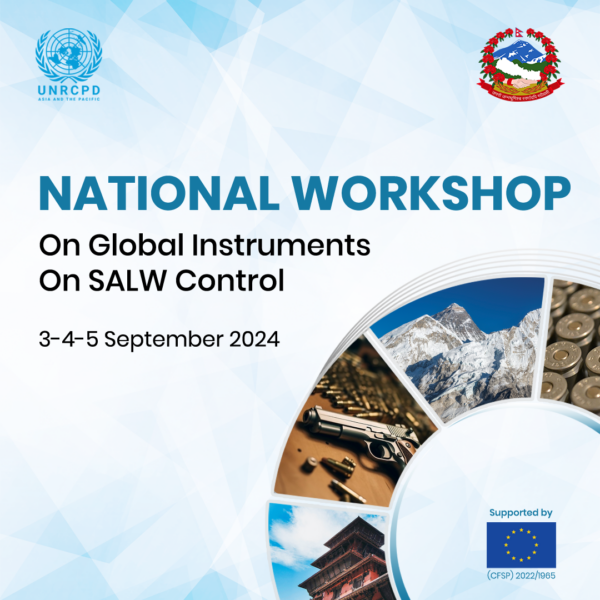
From 3 to 5 September 2024, stakeholders from Nepal came together for a National Workshop on Global Instruments on Small Arms and Light Weapons (SALW) Control at the Radisson Hotel in Kathmandu. The workshop -organized by the United Nations Regional Centre for Peace and Disarmament in Asia and the Pacific (UNRCPD) in collaboration with the Ministry of Foreign Affairs of Nepal and the Armed Police of Nepal, with financial support by the European Union – aimed to strengthen national dialogue, policy development, and inter-agency coordination on SALW control. This workshop forms part of Nepal’s ongoing efforts to boost the implementation of the UN Programme of Action (PoA) on SALW and the International Tracing Instrument (ITI), following the successful outcome of the Fourth Review Conference (RevCon4) held in New York from 18 to 28 June 2024.
Over three days, senior officials from the Ministry of Foreign Affairs, Ministry of Home Affairs, Ministry of Defense, Ministry of Women, Children and Senior Citizens, Ministry of Law, Justice and Parliamentary Affairs, Armed Police Force, Nepal Police, Nepali Army, alongside parliamentarians, civil society, and international experts, participated in discussions and practical exercises on key themes such as strengthening national control systems, addressing gender dimensions of armed violence, and aligning SALW control efforts with broader security and development goals such as the Women, Peace, and Security (WPS) agenda and the 2030 Agenda for Sustainable Development.
The workshop opened on 3 September with welcoming remarks from Mr. Aaron Junhoung Yoo, Deputy Director of UNRCPD, followed by addresses from Ms. Patricia Fernandez-Pacheco, UN Women Country Representative, and Senior Superintendent Bharat Khaniya from the Armed Police Force Nepal. H.E. Ambassador Amrit Bahadur Rai, Joint Secretary from the Ministry of Foreign Affairs, also highlighted the importance of Nepal’s role in peacekeeping and international disarmament efforts.
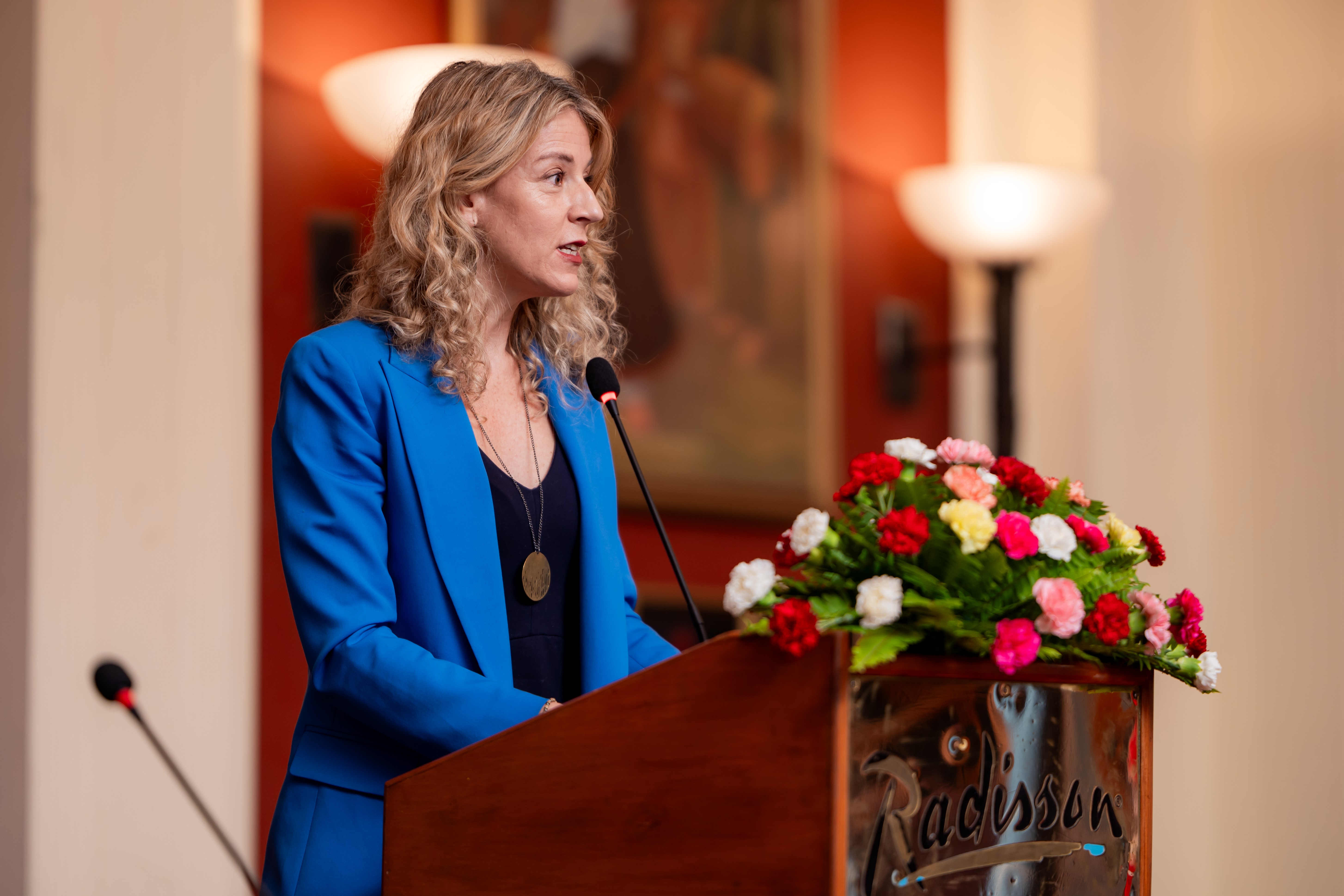
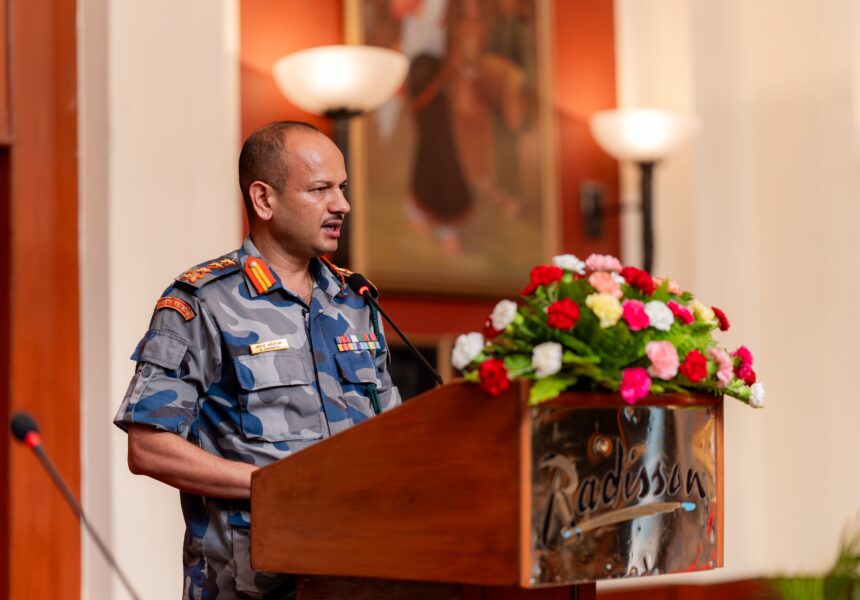
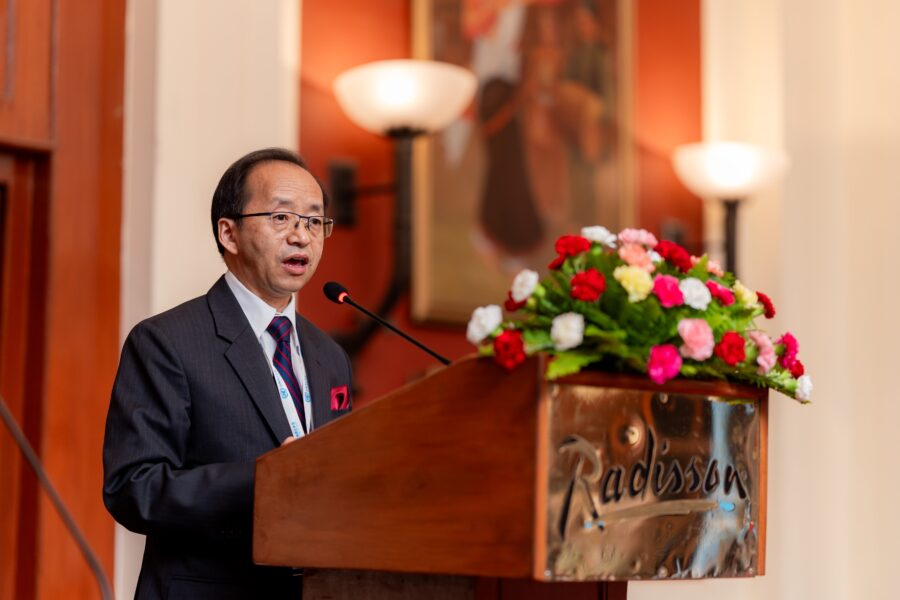
[Photo 1-3] Ms. Patricia Fernandez-Pacheco, Senior Superintendent Bharat Khaniya and H.E. Ambassador Amrit Bahadur Rai delivered opening remarks welcoming participants to the workshop.
Day 1 featured in-depth discussions on Nepal’s national context and its alignment with global instruments on SALW control. Ms. Purna Shova Chitrakar from the Ban Landmines Campaign Nepal (BLCN) and Mr. Pramod Jaiswal from the Nepal Institute for International Cooperation and Engagement (NIICE) provided insights into Nepal’s security environment, while Ms. Ida Scarpino from UNRCPD provided an overview of the global framework on SALW and it related to the national context.
Next, Mr. Alistair Gee, Director of the Centre for Armed Violence Reduction (CAVR), led discussions on the Arms Trade Treaty (ATT) and lessons learned from 10 years of implementation. Mr. Pramod Jaiswal and Mr. Deepak Prakash Bhatt, Chairperson of the Global Centre for Climate and Security Governance, shared insights on how Nepal’s accession to the ATT could advance the Sustainable Development Goals and complement International Humanitarian Law.
Mr. Purushottam Dhungel from the Ministry of Foreign Affairs presented the outcomes of the Fourth Review Conference of the UN PoA, highlighting Nepal’s role and the government’s commitment at the national, regional and global levels. The discussion continued on synergies with other instruments such as the Firearms Protocol, with a presentation by Mr. Ulrich Meiser, Head of the UN Office for Drugs and Crime (UNODC) Programme in Nepal. Mr. Ruben Nicolin from UN Institute for Disarmament Research (UNIDIR) addressed challenges related to SALW manufacturing, craft production, and advancements in technology.
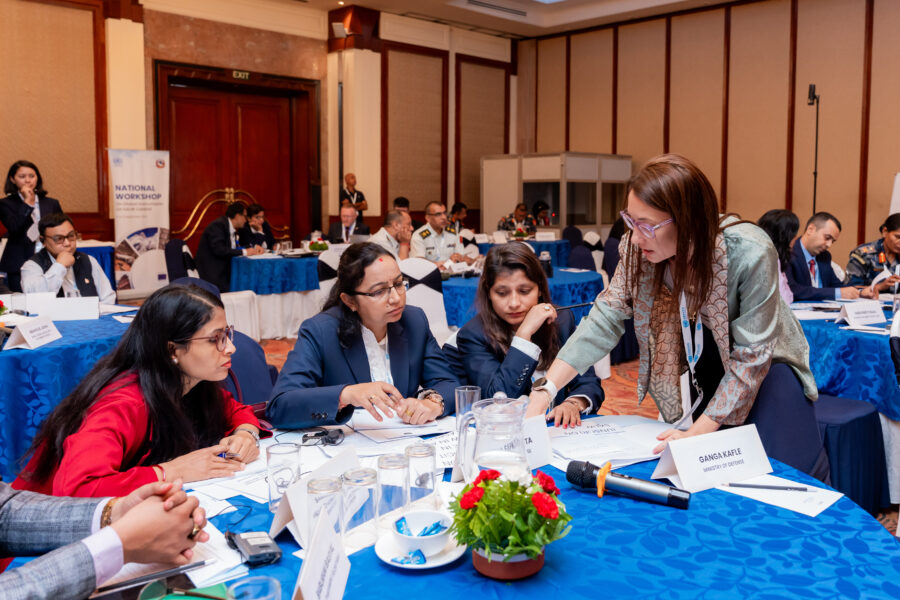
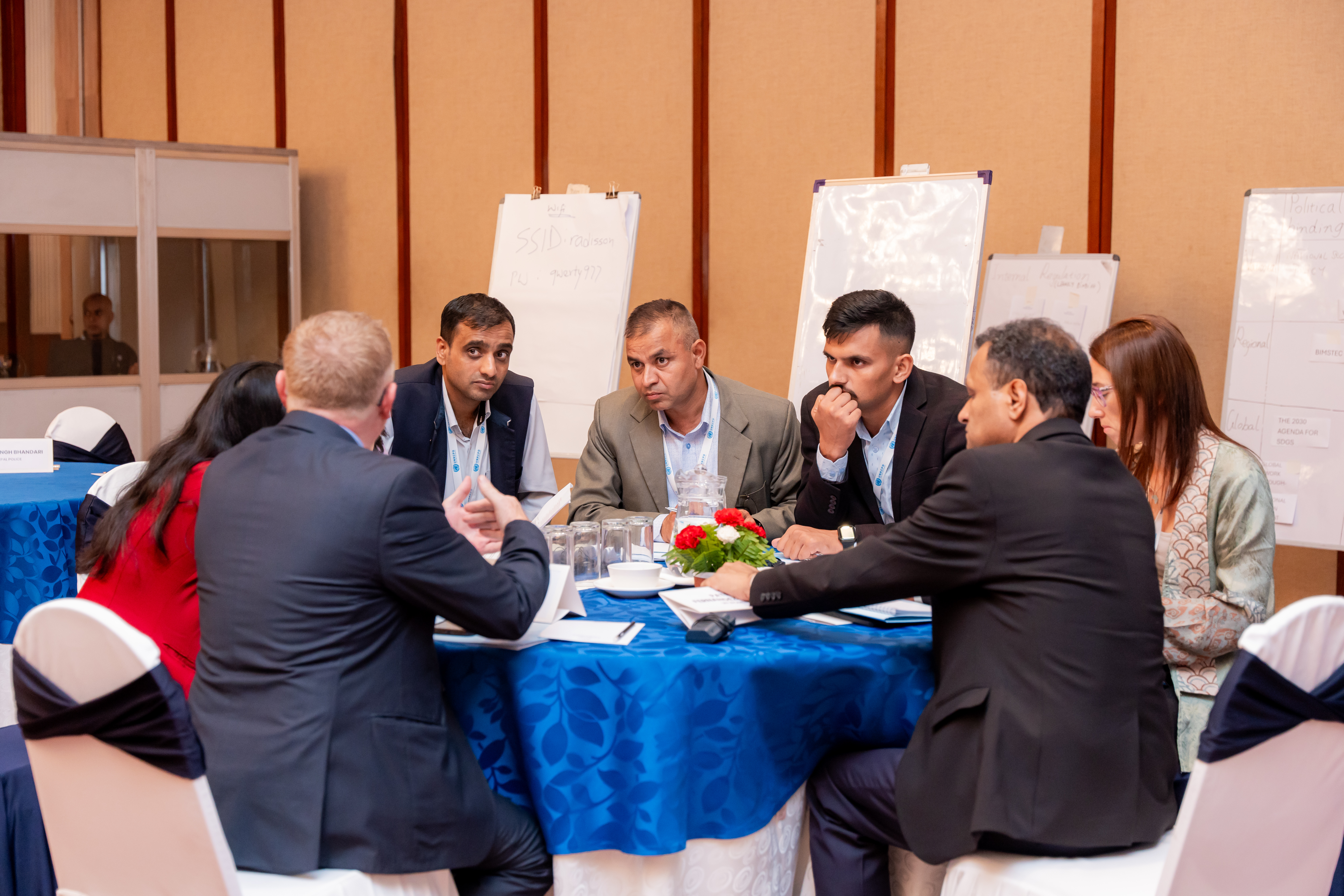
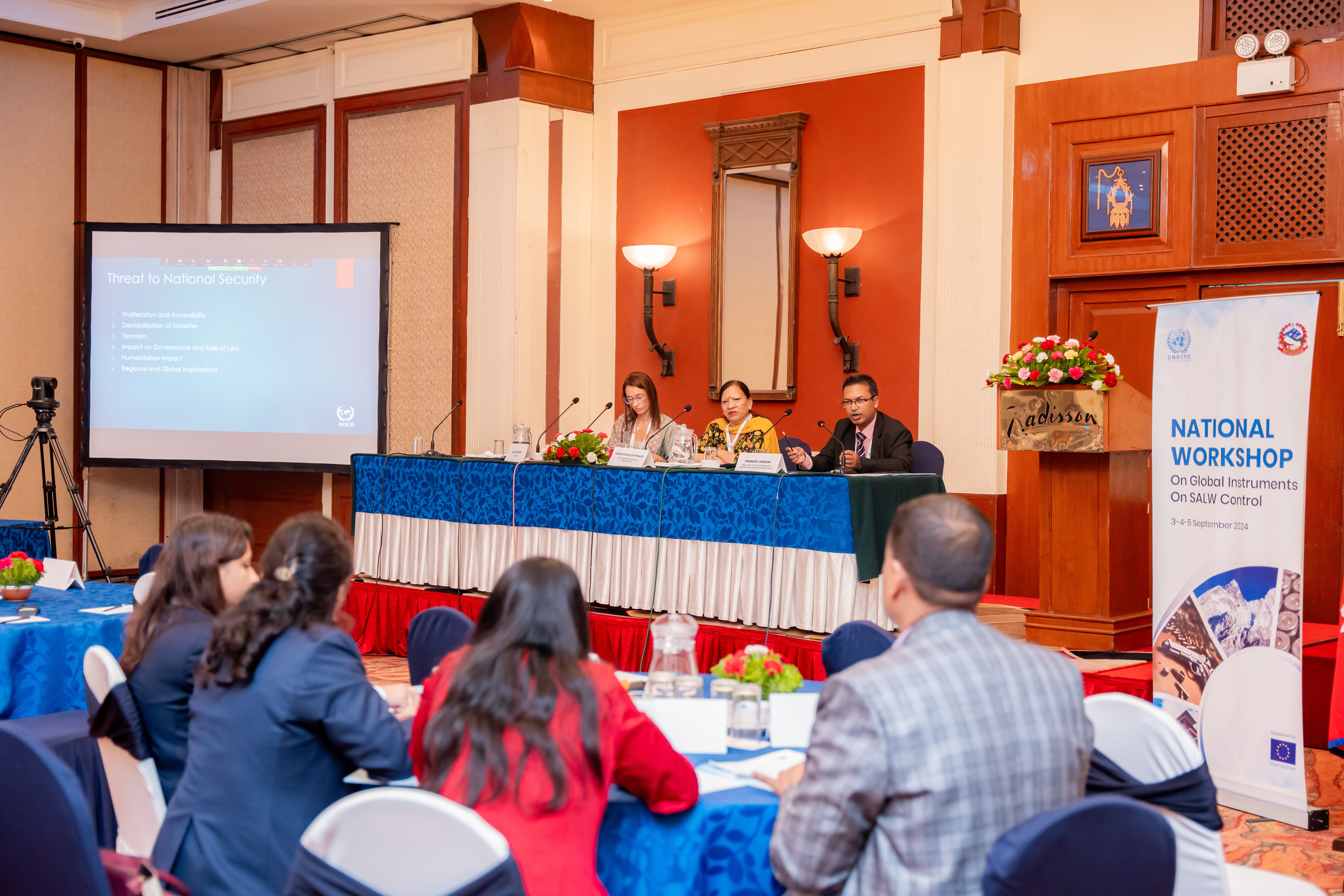
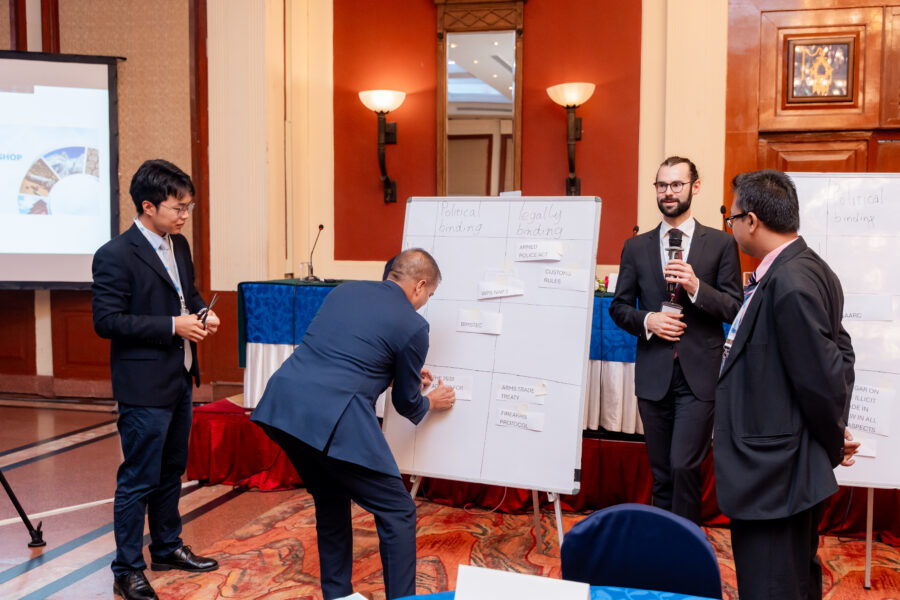
[Photo 4-7] Day 1 – Participants engaged in exercises focusing on identifying relevant policies and frameworks on the implementation of the UN PoA/ITI
Day 2, held on 4 September, focused on strengthening national control systems, gender mainstreaming, and practical implementation of SALW control policies. The morning sessions began with presentations by Superintendent P. Nirmal Khadka from the Armed Police Force, who provided an overview of Nepal’s efforts in SALW control, and Mr. Yagya Raj Poudyal from the Ministry of Foreign Affairs, who discussed inter-agency coordination mechanisms under the PoA.
The afternoon sessions highlighted the gendered impact of armed violence. Deputy Superintendent Jhupa Kumari Panthi of the Armed Police Force presented on gender policies within the security sector, emphasizing the integration of women in peace and security efforts. Ms, Subha Ghale from UN Women Nepal shared insights on Nepal’s WPS process and its synergies with SALW control initiatives.
Participants took part in practical exercises focused on drafting terms of reference for a National Coordination Mechanism and setting national targets for SALW control, including timelines and milestones. These exercises were instrumental in developing actionable strategies that will be further refined in the workshop’s outcome document.
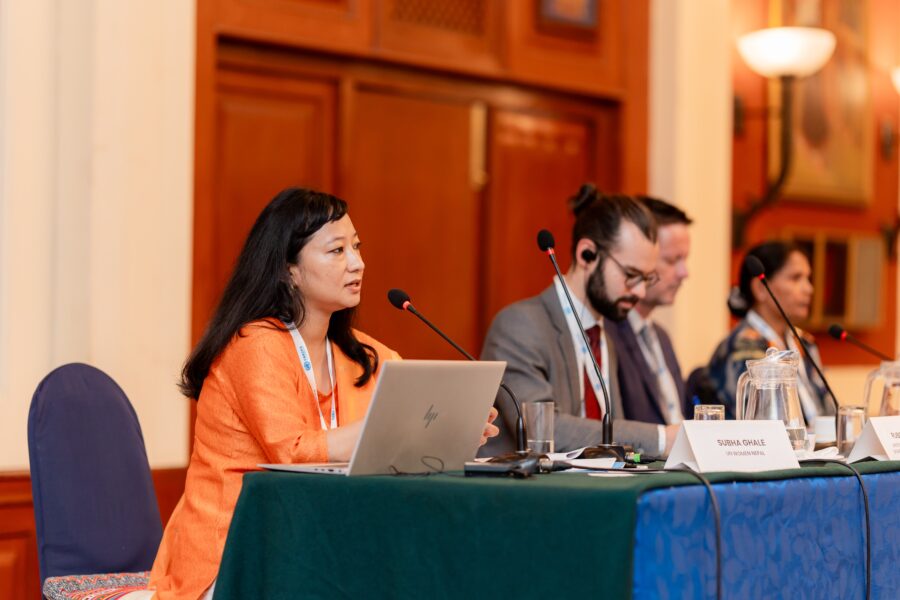
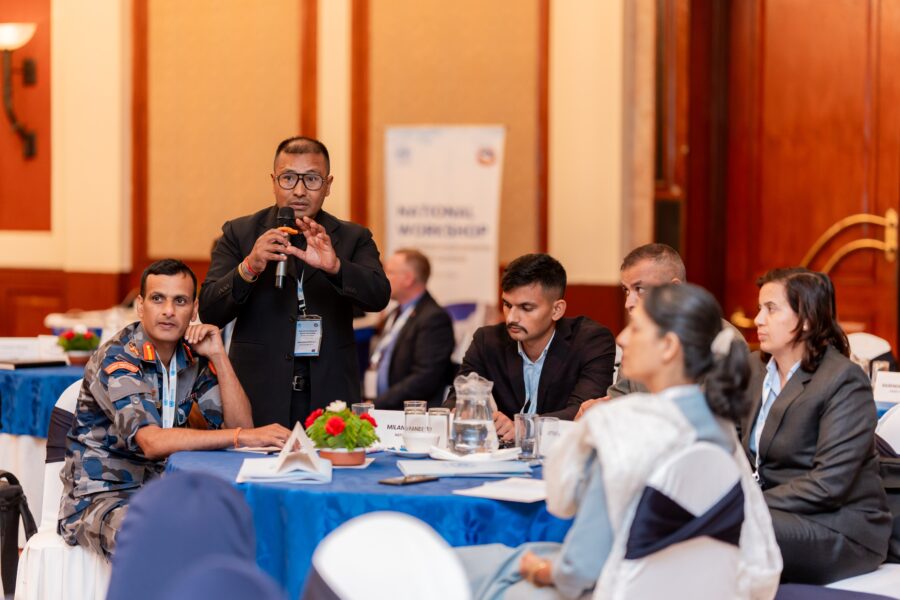
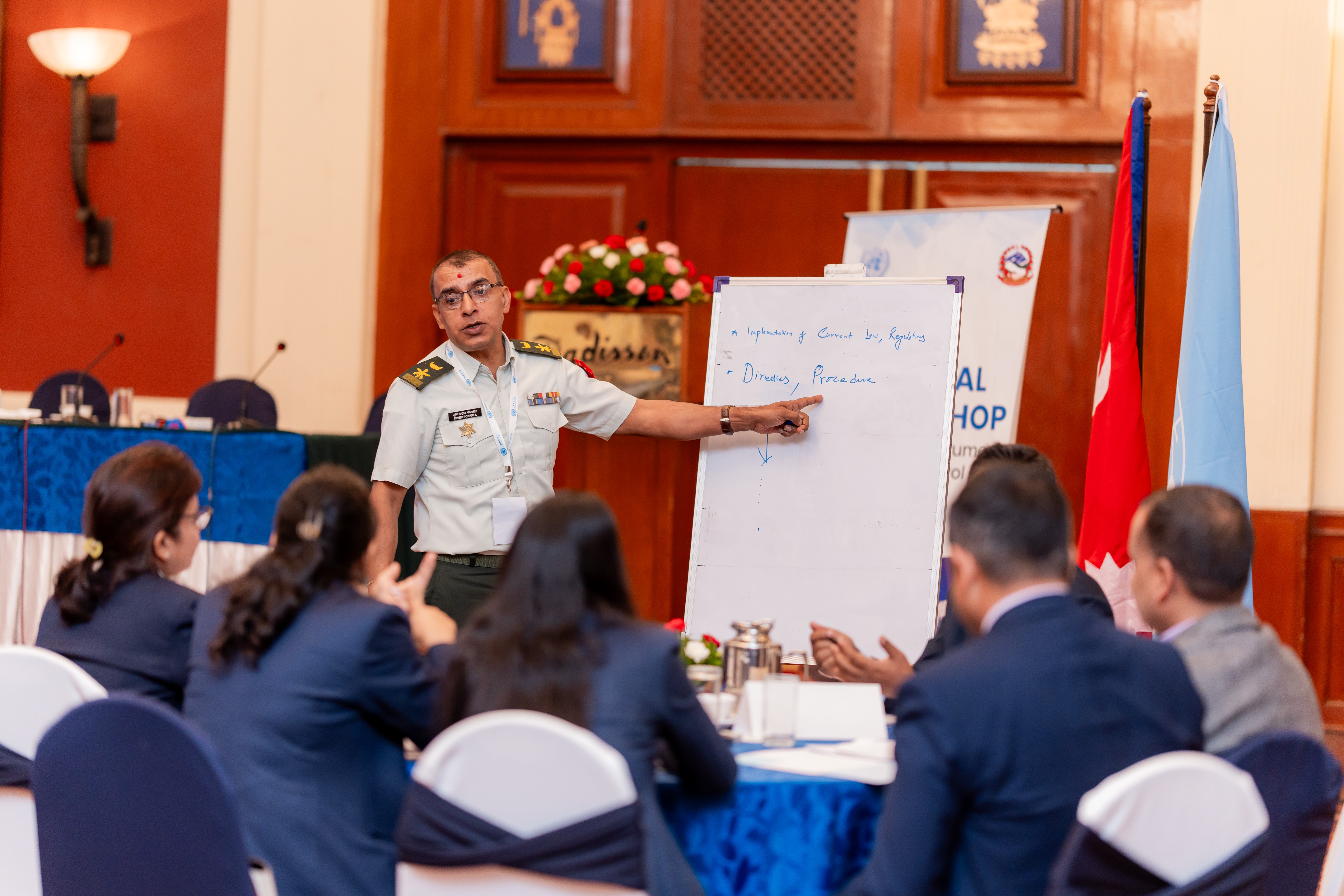
[Photo 8-10] Day 2 – Participants discussed ways to strengthen national control systems on Small Arms and Light Weapons (SALW) and integrating gender perspectives.
The final day, 5 September, featured a specialized session on operational small arms control and supply chain security, led by Mr. Llewelyn Jones and Mr. John Turnbull, respectively the Regional Director and the Technical Field Manager, from the Mines Advisory Group (MAG). The technical segment included a practical exercise using the MOSAIC self-assessment tool, led by UNIDIR, which helped participants evaluate Nepal’s current systems for SALW control and identify areas for international cooperation and assistance.
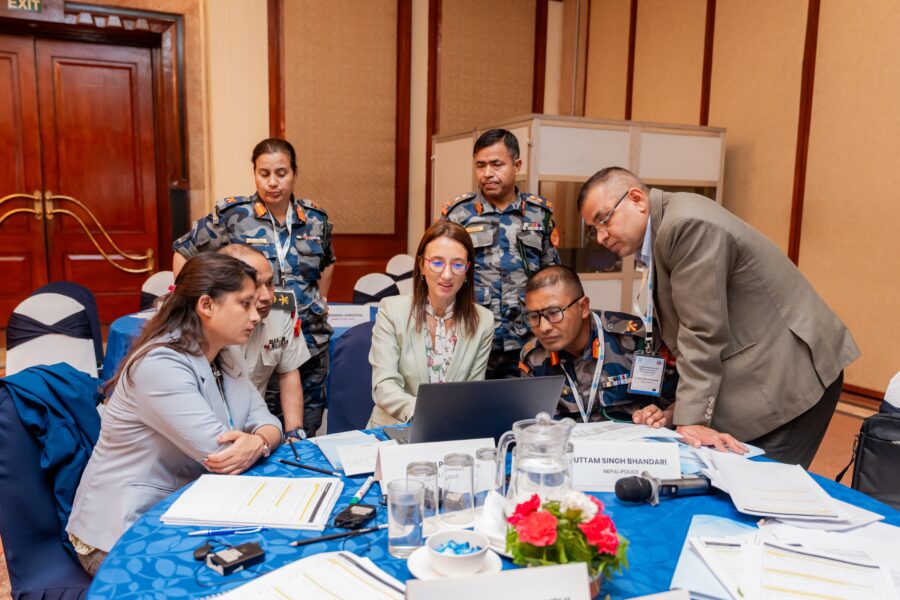
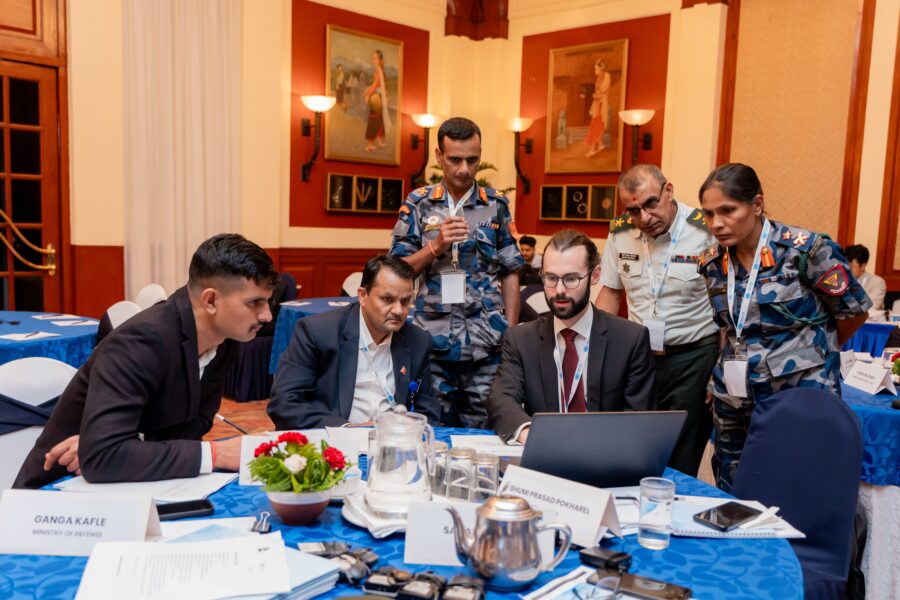
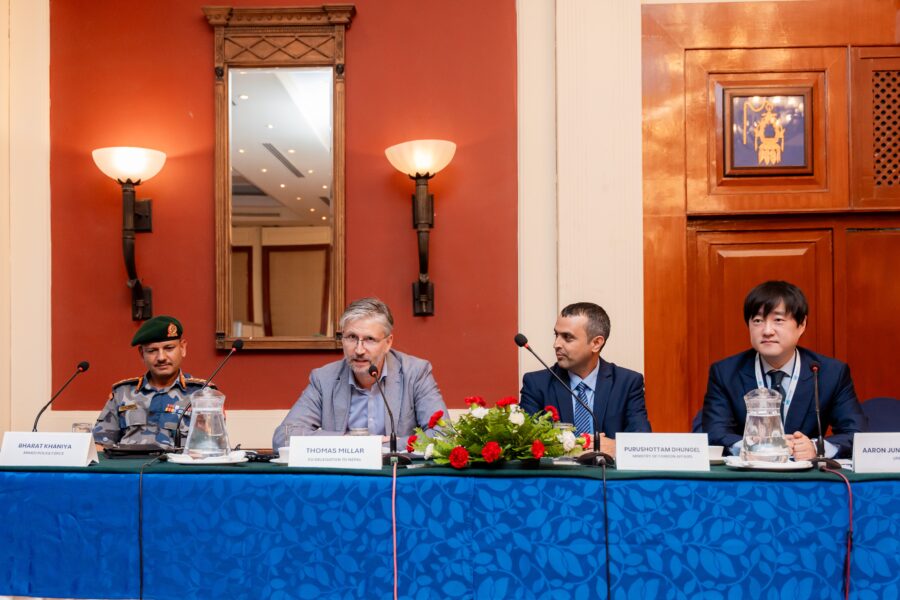
[Photo 11-13] Day 3 – Participants and experts delving into practical guidance on securely managing weapons stockpiles and improving transparency.
The workshop concluded with closing remarks from Mr. Thomas Millar, Deputy Head of the European Union Delegation to Nepal, Mr. Purushottam Dhungel, Under Secretary from the Ministry of Foreign Affairs, and Senior Superintendent Bharat Khaniya from the Armed Police Force. They emphasized the need for continued collaboration and commitment to translating the outcomes of the workshop into tangible actions.
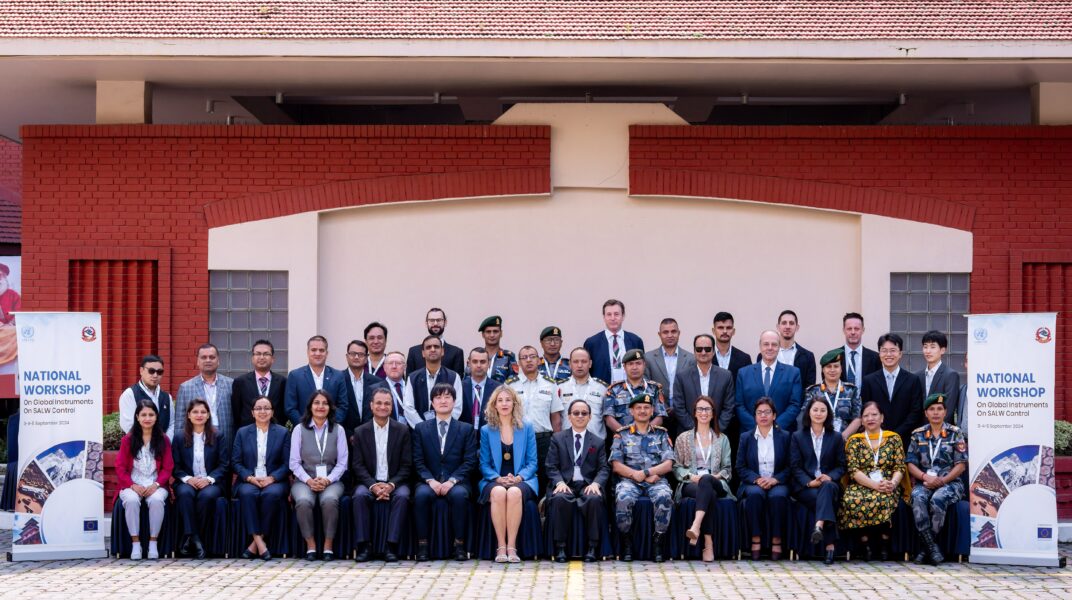
The National Workshop on Global Instruments on SALW Control marks a significant step forward in Nepal’s efforts to combat the illicit trade in small arms and light weapons. UNRCPD and its partners will continue to work closely with the Government of Nepal to support the implementation of SALW control measures and foster lasting security within the country.
For more information, contact unrcpd-info@un.org.

